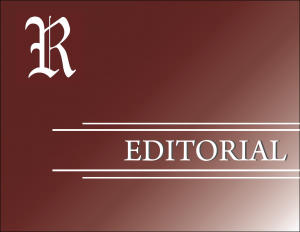
We at The Fordham Ram condemn the “Kekistan” flag and everything it stands for.
We support the free exchange of ideas, but there are lines that should not be crossed. The “Kekistan” flag mimics the Nazi war flag. It has been seen at multiple alt-right rallies. It is used to inflame and antagonize minority populations. It is a symbol of hate. It turns the free exchange of ideas into the politics of hate and fear.
We could not print this condemnation in our recent news article on the same subject.
But we—the members of the editorial board—are here now to tell you that yes, we disagree, and as journalists, sometimes difficult decisions must be made. Such was the case on Sunday.
If you’re reading this and didn’t read the original article, go read it and then come back to us. If you’re reading this and vocalized your disappointment, or perhaps distrust, in the journalistic actions of The Fordham Ram, refer to the editor’s note at the beginning of the article as our thesis statement.
As we mentioned in a disclaimer at the article’s onset, neither the identities of those in the photo were included, nor were their faces shown due to direct threats of legal action that The Fordham Ram received during its reporting process.
As the university’s official journal of record, we certainly think it is important to report what is impacting the Fordham community to the Fordham community. This is our bottom line as a campus publication.
A lawsuit, regardless of its severity or end result, has the potential to impact our ability to produce the news in the future: the news that we need to share with you. The news that may have made you aware that this symbol of white supremacy was brought onto campus in the first place.
If we printed the names and exposed the faces of those ten students, the threat of a lawsuit could have easily transitioned into concrete action. The legal process would be costly, both financially and logistically.
As a collegiate club, we get our funding from the university through the Office of Student Involvement in the same way as any other on-campus organization.
Fordham University is technically our publisher, but it is not our parent.
We are not censored. We are not cowardly. We are not in bed with anyone.
We have, and will continue to, report on the issues impacting our campus, regardless of if they are clad with controversy or not. In the past year, we covered the scandals surrounding Students of Justice for Palestine and the vote of no confidence against our university president, among others, without the influence of outside forces.
We can only report on what we ascertain to be fact. It is The Fordham Ram’s responsibility to provide readers with the facts to judge the situation themselves. Determining the guilt or innocence of the individuals in the photo is a responsibility that falls on the weight of the university.
The unedited photo has now been tweeted by other individuals and student organizations many times over.
In a news reporting scenario, unsourced quotations are included in highly specific situations when there is a palpable threat. In this case, The Fordham Ram received that threat.
A news piece is meant to do what its name says. After a thorough reporting process, we published an article on the facts and the facts alone.
The news article was not an op-ed. Editorializing has no place in the news section. It is simply not allowed. Journalistic integrity is not just a concept we throw around at The Fordham Ram, but something that we adhere to wholeheartedly.
The Fordham Ram does not produce advocacy journalism. That being said, through our reporting, we can inspire change. We can empower student activists by providing them with the necessary information and a platform to voice their opinions.
We care deeply, and we continue to publish, knowing the reaction might not be pretty.
Our responsibility is to report the facts as we know them, when we know them. Unless more information comes to light on this issue, our news team cannot report on anything but what it knows to be true.
We at The Fordham Ram firmly believe that white supremacy has no place on our campus. The ideologies brought forth by the “Kekistan” flag and its alt-right connotations – whether displayed with deliberate intention or within meme-based territory meant to joke – create further schism on a campus where minority students feel increasingly vulnerable.
If you are angry, upset or anywhere in between, we encourage you to please reach out to us at [email protected] and respond to this ongoing situation by contributing an op-ed or letter to the editorial board.


































































































































































































